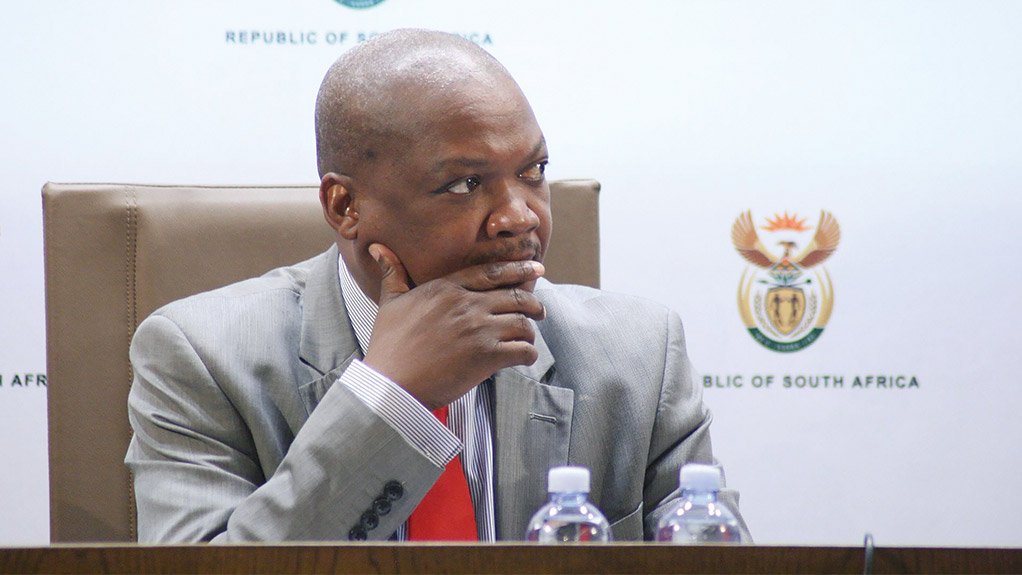South Africa’s highly respected Independent Power Producer (IPP) Office, which has overseen nearly R200-billion-worth of renewable-energy investment since 2011, is to be incorporated into the Central Energy Fund (CEF), which itself is to be overhauled.
Energy Minister Mmamoloko Kubayi announced plans for the restructuring during her inaugural Budget Vote address on Friday, during which she also confirmed that the African Exploration Mining and Finance Corporation, currently a subsidiary of the CEF, would be transferred to the Department of Mineral Resources, along with the Petroleum Agency of South Africa, hitherto under the authority of the Department of Energy (DoE).
The relocation of the IPP Office comes amid uncertainty surrounding the future of South Africa’s IPP programme, owing to Eskom’s recent refusal to sign power purchase agreements for 37 projects procured by the office in 2015. The standoff is currently the subject of deliberations by a task team comprising the DoE, the IPP Office, the Department of Public Enterprises and Eskom. The team is expected to come up with a solution in early June.
Without elaborating, Kubayi indicated that the IPP Office faced financial constraints, which could be resolved through its incorporation under CEF. However, two CEF companies, PetroSA and the Strategic Fuel Fund (SFF) are facing serious financial and governance problems, which have the potential to undermine CEF’s own sustainability.
PetroSA announced a loss of R449-million for 2015/16, after reporting a record operating loss of R14.6-billion in 2014/15. It is projecting losses of R2.2-billion for the year to end March 2017.
In addition, its gas-to-liquids refinery is facing serious feedstock shortages, owing to the failure of an initiative known as Project Ikhwezi to replenish gas resources. Gas reserves arising from the project are calculated at only 25-billion cubic feet (bcf), rather than the 242 bcf initially forecast.
It has also emerged that CEF chairperson Luvo Makasi has written to the PetroSA board asking them to resign with immediate effect, while Kubayi herself has dubbed the national oil company a “problem child”.
At SFF, meanwhile, Kubayi has instituted an investigation into the illegal sale of 10-million barrels of crude oil, sold at a discount to the already depressed spot prices prevailing at the time. The sale was initially described as a “stock rotation” by former Energy Minister Tina Joemat-Pettersson.
Kubayi announced that DoE director-general Thabane Zulu had been seconded to SFF as acting CEO to “ensure that we are able to implement the recommendations in light of the report on the selling of strategic fuel reserves for the country”. Deputy director-general Tseliso Maqubela will act in Zulu’s place for the duration of the secondment.
The Minister indicated that Zulu’s appointment was designed to ensure that there was no interference with both the investigation of the sale or any restructuring of SFF. She also did not discount laying criminal charges against the SFF executives responsible.
“It’s not a small thing – the issue of selling not rotating,” Kubayi said, adding that it was possible that the Special Investigations Unit would be brought in to support the probe.
Problems at SFF and PetroSA had also led the DoE to interrogate ways of improving governance and accountability at CEF subsidiaries. “In order to achieve this we will, in the coming months be embarking on restructuring of the CEF group and create a model that makes it easy for accountability and ensures the entity operates efficiently and in a professional manner.”
Kubayi hinted that the boards at the various CEF subsidiaries could be disbanded in favour of a single board, along the lines of the Transnet structure, where the various divisions fell under a single governance structure.
She would also not confirm for certain whether PetroSA would be given responsibility for revived plans for a new crude refinery, saying only that it would be pursued as a public-private partnership (PPP), with majority South African ownership in partnership with an established oil producer. “In the third quarter of this financial year we will be approaching Cabinet for a firm decision in this regard.”
The CEF would, however, most likely play a role in the proposed development of a new gas pipeline from northern Mozambique, to South Africa. “In line with our regional integration strategy, we will negotiate with Mozambique regarding an energy collaboration agreement for the building of a pipeline from the Rovuma basin into South Africa, among other things. This will not only enable us to have access to natural gas from a neighbour, but it will also improve the possibility of a relatively attractive gas pricing formula relative to sourcing gas from the international market.”
Kubayi indicated talks had already been initiated with the Mozambican authorities and that certain regulatory constraints had already been identified, which would be discussed with the National Energy Regulator of South Africa.
Edited by: Creamer Media Reporter
EMAIL THIS ARTICLE SAVE THIS ARTICLE
ARTICLE ENQUIRY
To subscribe email subscriptions@creamermedia.co.za or click here
To advertise email advertising@creamermedia.co.za or click here













